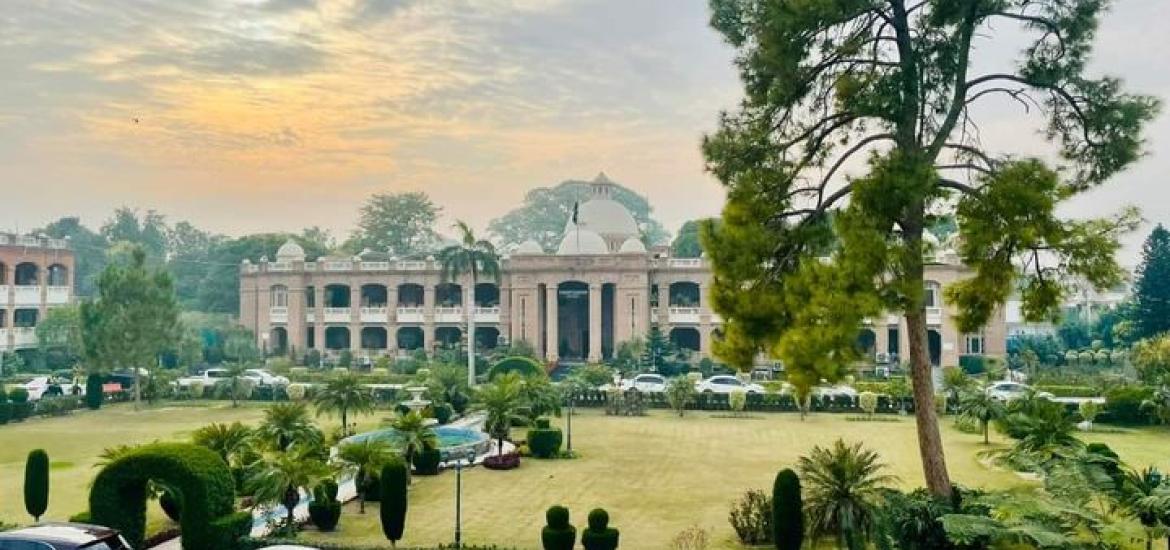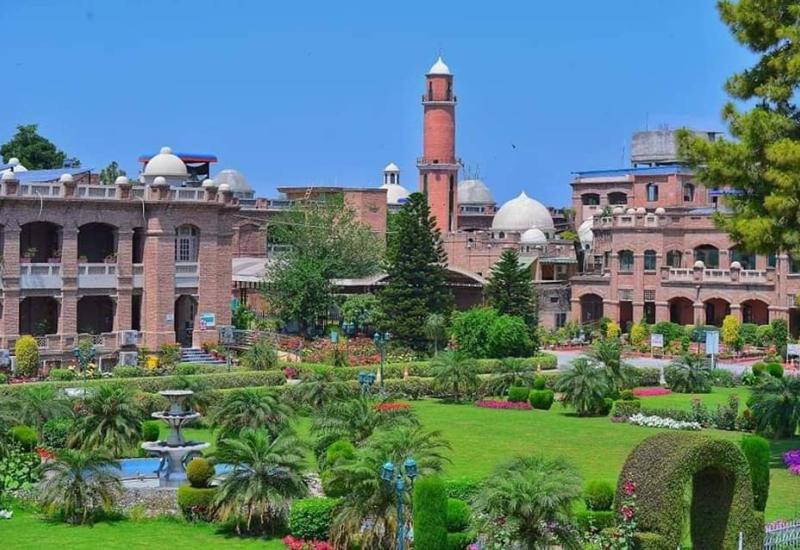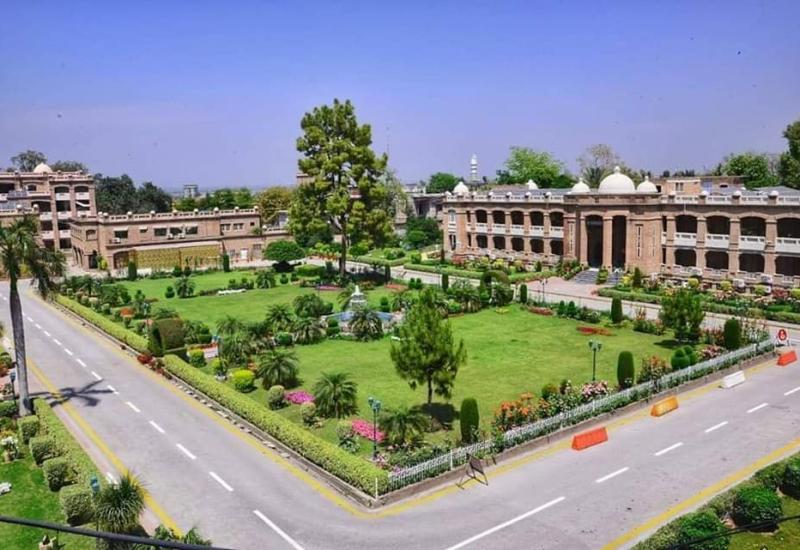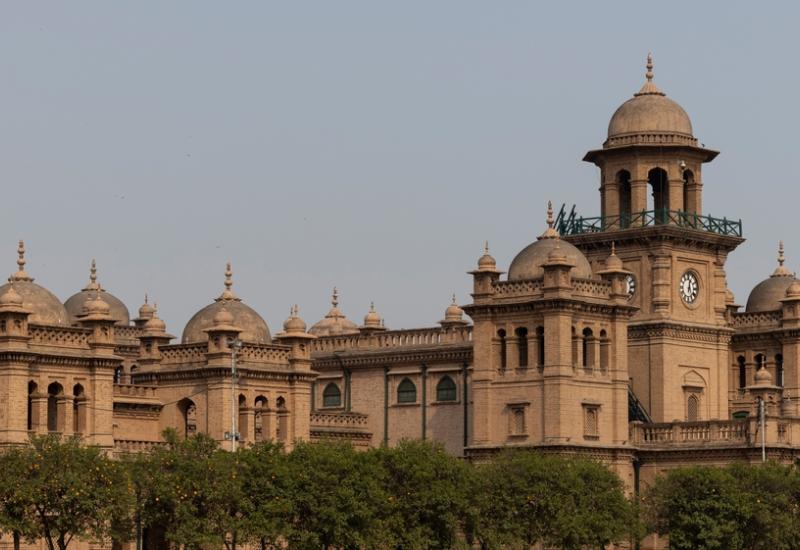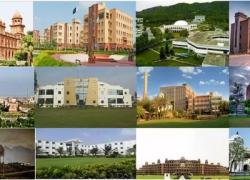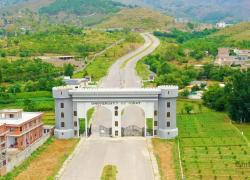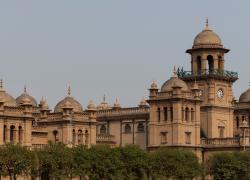How the Financial Assistance by the Government of Khyber Pakhtunkhwa for the few selected Universities left some emerging universities in the lurch?
The government of Khyber Pakhtunkhwa recently accorded approval for a bailout package, to the tune of Rs. 1.985 billion for the public sector universities in the province in the backdrop of serious financial crunch these seats of advanced learning have been facing since long.
This blog post examines how the financial assistance by the Government of Khyber Pakhtunkhwa for the 06 selected Universities left some leading universities in the province such as Khyber Medical University (KMU) Peshawar in the lurch.
The provincial cabinet in its 70th meeting held on 27th April decided to provide financial assistance to the cash strapped six public sector universities. This unanimous decision was based on the recommendations made by the cabinet committee constituted by the cabinet it is 56th meeting to look into the deteriorating financial health of these universities.
The cabinet committee, chaired by Mr. Taimur Salim Jhagra, finance minister, government of Khyber Pakhtunkhwa held a series of meetings and extensive consultation with all key stakeholders. After detailed discussion and thorough deliberations, the Committee developed a consensus to rationalize the demand of the universities amounting to Rs 5.259 billion and recommended to grant 1.985 billion to the six public sector universities including Rs. 50 million each to Abdul Wali Khan University Mardan (AWKUM) and University of Peshawar (UoP) as performance grant on their improved performance with regard to austerity, rationalization and self-sustainability.
It is pertinent to mention that the universities had demanded the provincial government for a sum of Rs. 5.259 billion to meet their surging financial needs, however, the government agreed to extend financial assistance to the six public sector universities in the province to the tune of Rs. 1.985 billion to help out these seats of higher education and research in addressing their serious financial crisis.
The finance minister disclosed that the provincial government made a detailed review of the respective demands set forth by each university and proposed a bailout package amounting to Rs 1.985 billion against an aggregate demand of Rs. 5.3 billion. He appreciated the performance initiatives of the University of Peshawar and Abdul Wali Khan University Mardan for which the two universities have been given an additional Rs. 50 million each as performance incentives.
______________________________________________
At least Khyber Medical University deserves the performance grant for its outstanding performance much more than any other public sector university in the province. ___________________________________________
It is pertinent to mention that the universities have been confronting financial crises for the last couple of years. Sometimes the universities remained unable to pay even salaries and pensions to the employees, let alone the increase in salaries and pensions in line with the announcements made by the federal and provincial governments from time to time. The deplorable financial health of the universities remained one of the greatest challenges for the Vice-Chancellors. This state of affairs has generated serious apprehension in the public sector universities, during the last couple of years. The issue has been raised through mass media. The academic leaders, university administrators and research scholars talked a lot about it. Nonetheless, the issue failed to grab the attention of the people at the helm of affairs in the past.
Very recently, the teaching faculty of the University of Peshawar and the historic Islamia College University (ICU) Peshawar boycotted their classes to force the management to raise their salaries besides accepting their other justified demands in the recent past. The Gomal University has been facing the perpetual problem week financial health. The UET, Peshawar has also been suffering serious financial issues though it has been able to pay salaries and pensions well in time so far.
As per decision made by the provincial cabinet, the University of Engineering and Technology (UET) Peshawar demanded Rs. 1000 million against which the university was granted Rs. 373 million. Islamia College University (ICU) Peshawar sought Rs. 537 million and Rs. 200 million have been approved to be given to the university. Abdul Wali Khan University Mardan had wanted a bailout package worth Rs. 510 million against which the university has been given Rs.290 million. This university shall also receive Rs50 million as an additional amount for its performance.
Agriculture University Peshawar was in need of Rs. 822 million and the provincial government has agreed to provide it with Rs. 422 million. Gomal University Dera Ismail Khan shall get Rs, 200 million against its demand of Rs. 266 million. The University of Peshawar demanded Rs. 2124 million against which the government consented to provide Rs. 400 million in addition to the Rs. 50 million performance incentive.
The Agriculture University has recently made its budget surplus. Abdul Wali Khan University is the sole among the six public sector universities in Khyber Pakhtunkhwa which owns sufficient finances to cater to its needs. Its budget is surplus, though its fees are lesser than all the public sector universities in the province. The university also offers free education facilities to minority members, orphan students and persons with disabilities.
The University of Peshawar, which got the performance incentive of Rs. 50 million and won appreciation from the provincial government, has improved its earnings by increasing the fees manifold and reducing the incentives and allowances of the university employees. The university has shifted the burden to students and employees for which the university administration is facing criticism from the real stakeholders of the university.
This not only bears witness to the PTI provincial government’s commitment to promoting higher education in the province but also reflects the practical steps undertaken by the government to help the public sector universities get over their financial troubles.
At the same time, some very deserving and leading public sector universities such as Khyber Medical University (KMU), Peshawar have been neglected altogether. The university, being the sole public sector medical university in the province has achieved numerous milestones with regard to standardization, uniformity and enhancing the quality of medical and allied health sciences education in the province.
The university has expanded from a humble status with only two constituent institutes and a few hundred students on the roll in 2008 to one of the leading universities in the field of medical and allied health sciences education in the region. Currently, the university is having eight satellite campuses across the length and breadth of the province including a state of the art campus in the capital city Islamabad and the recently announced first International Campus at Kabul, Afghanistan.
The university has 10 constituent institutes offering a range of both undergraduate and postgraduate degree programs. The university has a vast number of affiliated colleges with 17 medical and 7 dental colleges both in the public and private sector in the province. The university has also more than 170 affiliated colleges and institutes in a variety of disciples of medical and allied health sciences such as MPhil in Basic Medical Sciences, Masters in Public Health (MPH), BS Paramedics, BS Nursing, Post RN, Doctor of Physical Therapy (DPT) and BHMS, with 58 colleges/institutes in Paramedical sciences, 92 colleges in Nursing Education and 20 colleges/institutes in Physical Therapy and Rehabilitation.
The overwhelming response by the students and their parents to the various academic programs and courses on offer from a wide range of disciplines testifies to the trust and confidence of the academic community with regard to the quality, access and relevance of these courses.
The accomplishment of these millstones is not possible without overwhelming support from the government. The provincial, as well as federal government, should provide financial assistance to such universities to keep up the momentum. At least KMU deserves the performance grant for its outstanding performance much more than any other public sector university in the province.

